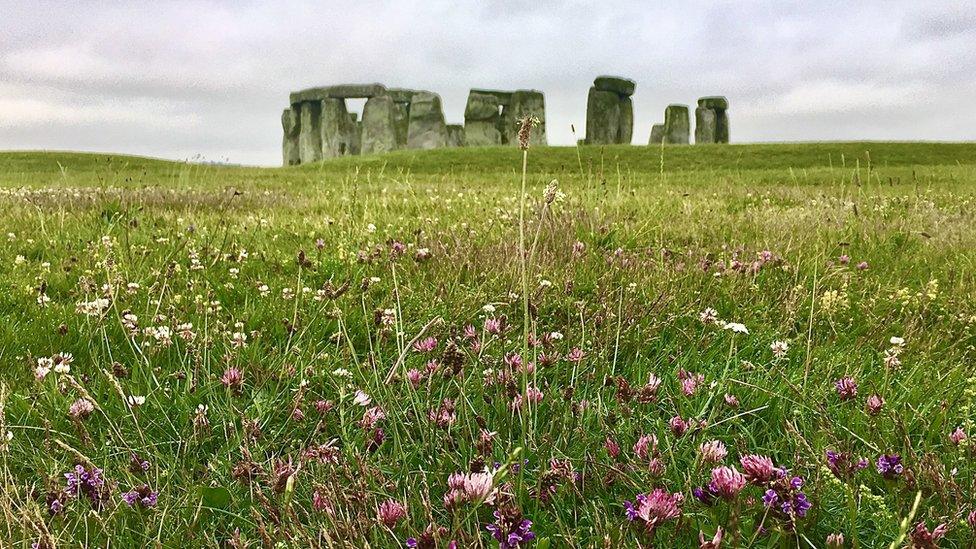Somerset Wildlife Trust celebrates wilder gardens
- Published
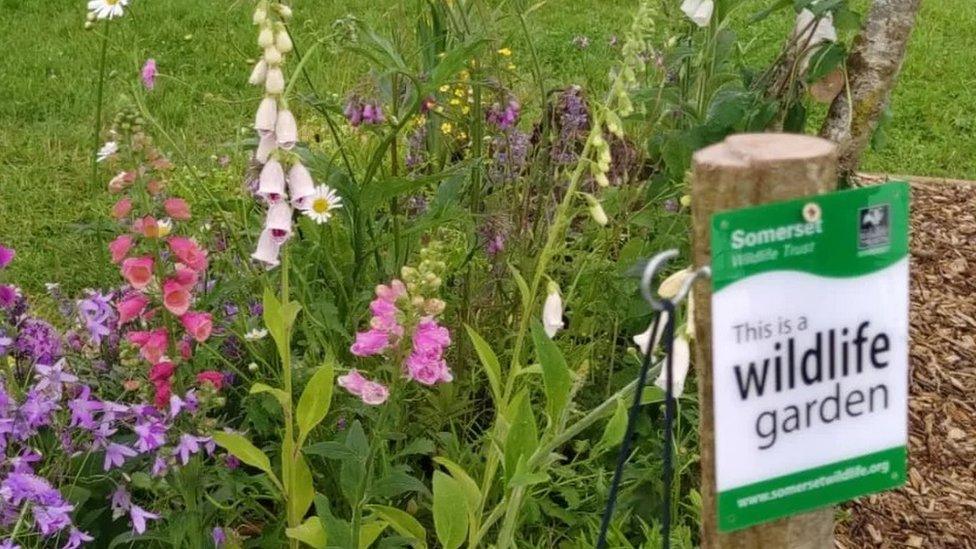
Somerset Wildlife Trust wants to recognise gardeners who make space for nature
A nature charity is rewarding gardeners who make space for wildlife.
Somerset Wildlife Trust is giving plaques to people who allow wildflowers to bloom and cut out the use of weedkillers.
It hopes it will inspire others, and this year it is also offering plaques for whole communities making a collective effort to support nature.
Fellow charity Plantlife says it has already seen some bird species increasing thanks to wilder gardening.
Bryony Slaymaker, of Somerset Wildlife Trust, said: "The aim is to give people recognition and to say thank you because gardens are so important and if we all do a little bit it will make a huge difference.
'Tip the balance'
"Behavioural science tells us that if one in four people visibly take action, that encourages everyone else to do things - it tips the balance."
No Mow May, where gardeners do not use their lawnmowers or shears for a month, was launched by Plantlife in 2018, and has been steadily gaining traction.
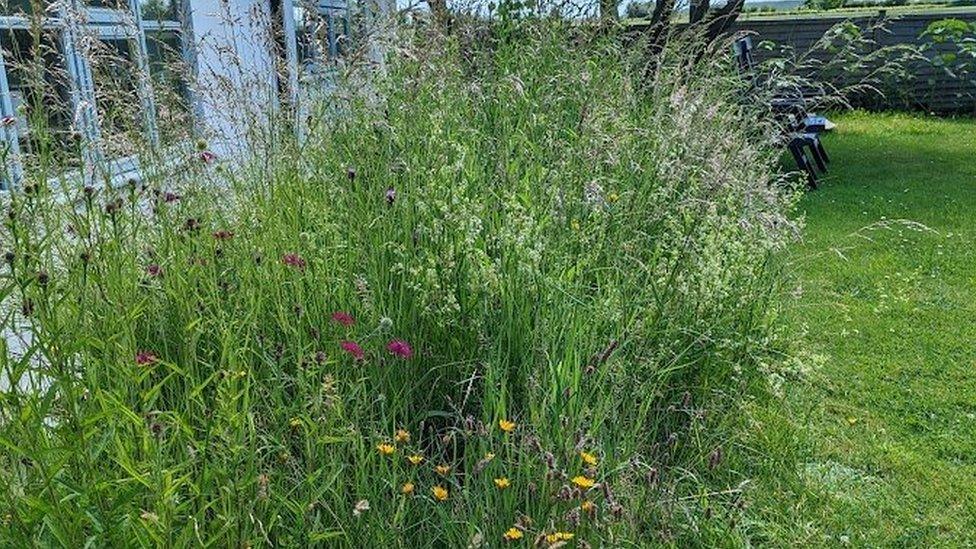
Wilder gardens can create havens for insects and birds
People can apply for a plaque by filling out a self-assessment survey on the Somerset Wildlife Trust's website with details of their garden's size and the different features they have added.
Those with just a courtyard or window box can join in, and there is also a category for allotments.
This year, for the first time a street, village or an entire town can try to earn a community plaque if enough people start managing gardens and green spaces for wildlife.
Ms Slaymaker said: "This is brand new, no one has got it yet - the plaques aren't even printed out but we would really love to see it."
"It is a big ambition, and it will take local people and community champions getting behind it."
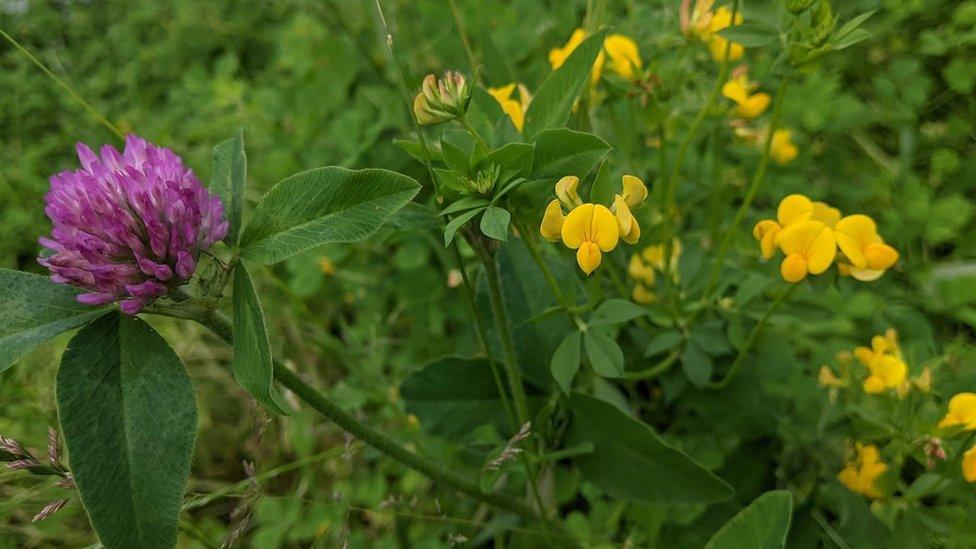
Clover and birdsfoot trefoil are among the species that can flourish when green spaces are left to grow
'Definitely makes a difference'
Sarah Shuttleworth, senior ecological advisor with Plantlife, says efforts by individuals and local communities can add up to real policy change.
"If people are changing the way they are managing their own gardens, they are going to start changing their values about how they feel about wildlife everywhere, and that definitely does make a difference," she said.
"If we have this idea of 'I can't do anything because it is such a small amount,' that is not the way we are going to change things in the biodiversity crisis."
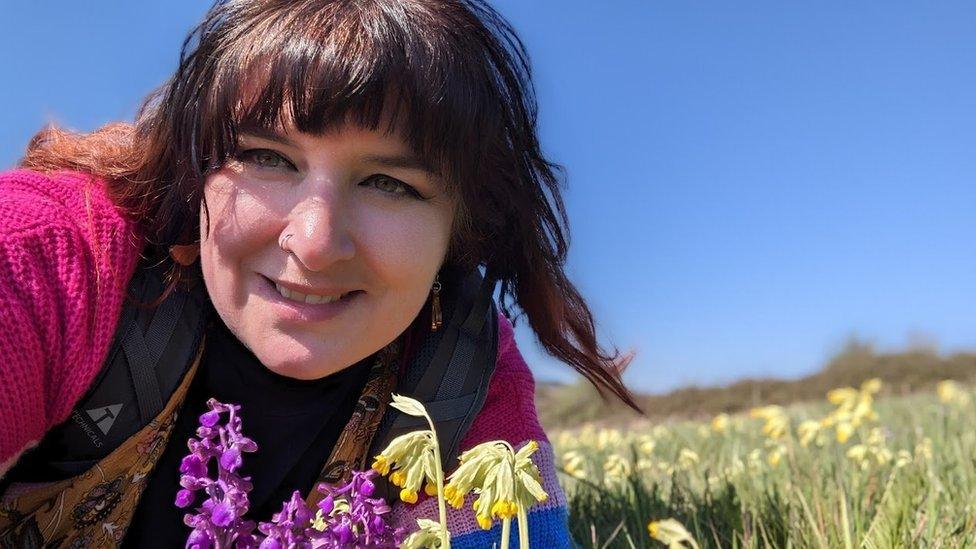
Sarah Shuttleworth manages several wildflower sites
Ms Shuttleworth, who is based North Curry, manages some plots of land in the Somerset village and says she has already started to notice the difference.
"I have seen an increase in plant life and an increase in bird species, including predators such as sparrowhawks."

Follow BBC West on Facebook, external, Twitter, external and Instagram, external. Send your story ideas to: bristol@bbc.co.uk , external
Related topics
- Published1 May 2023
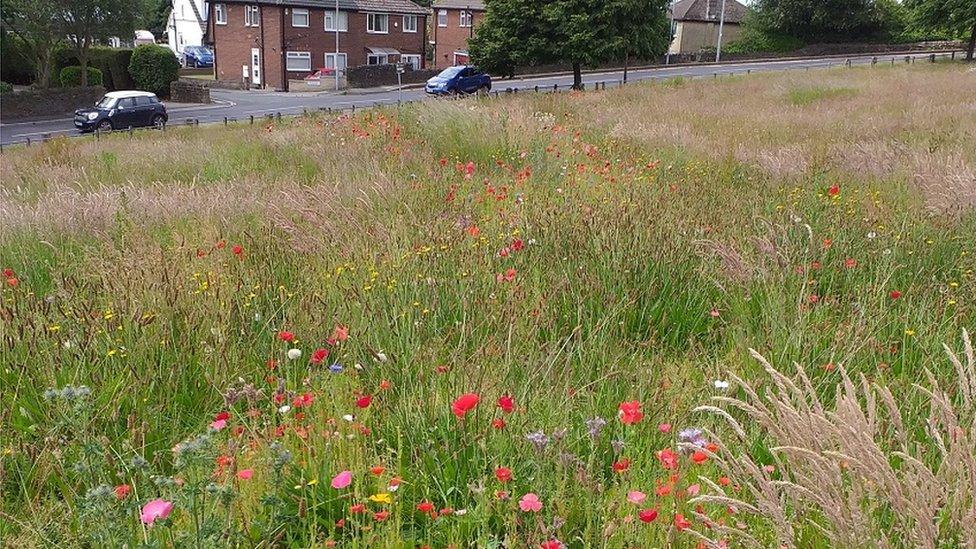
- Published3 May 2023
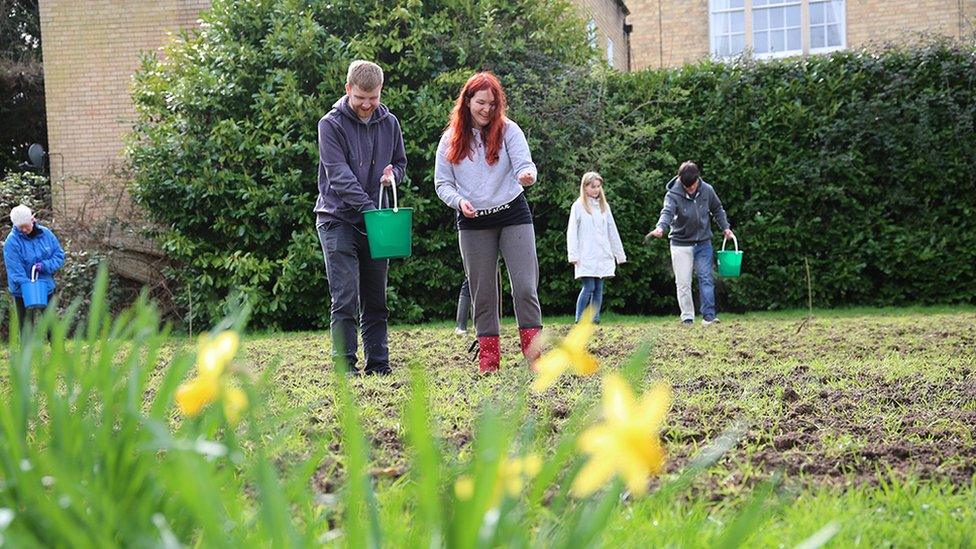
- Published31 March 2023
